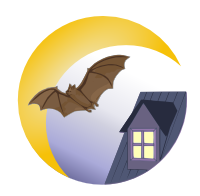Bats: Threatening? No… threatened!
Contrary to popular belief, bats are not dangerous pests, but in fact they represent a crucial part of our ecosystems (Bat facts). Among other things, they play a significant role in controlling pest insects in the agricultural and forestry sectors, as well as around our homes.
Unfortunately, for the past few years, bats have been affected by a fungal infection called white-nose syndrome (WNS) that has reduced the populations of cave-dwelling species by around 90% in infected areas. There are a few ways that cavers can limit the spread of this fungal disease when visiting caves. It essential for cavers to disinfect all their equipment prior to, and following, visiting caves that serve as hibernacula to avoid spreading the fungal spores responsible for WNS to sites that are not contaminated. Moreover, during the hibernation period (November to May), cavers must avoid disturbing bats, because every time a bat is woken up, it must use up a substantial part of its energy reserves. During the summer, people should avoid disturbing or moving groups of bats that are raising their young. Instead, bat boxes can be set up to provide shelter for bats. By limiting any disturbance to the bats during summer, you avoid disrupting their breeding, which in turn can help limit the decline of their populations.
Another way people can help with conservation efforts, is to use this website to upload the locations and sizes of summer bat colonies. To do this, all you have to do is register and then use our online forms to upload the location of the colony (Add a colony) and the number of bats living in the colony (Add a count). Every small contribution counts! Your involvement can make a real difference in helping us monitor and protect bats in Manitoba, Ontario, Quebec, Alberta, Saskatchewan, and Yukon! People can also help by contacting their respective provincial/territorial authorities to report bats that are behaving strangely (e.g. active in winter or flying during the day) or a dead bat.

